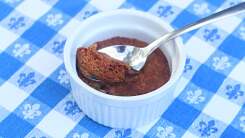Why Does Salt Have an Expiration Date?
Salt is an incredibly common ingredient that most of us take for granted. It’s a simple, inorganic (meaning “not carbon based”) molecule comprised of two tiny ions, sodium and chloride, but its ability to flavor and preserve is what makes it valuable—so valuable that it made its way into the word “salary.”
Salt preserves food by drawing out moisture, suppressing the growth of harmful bacteria, and encouraging the growth of helpful bacteria—so why do canisters of the stuff come with expiration dates?
The culprit is not sodium chloride, but the additives some manufacturers mix in with it to prevent clumping, or add nutrients. Iodine, anti-clumping agents, and trace minerals in pink, red, or black salts can degrade with time, but degradation doesn’t guarantee harm. The additives may not do their job as well—your salt may start to clump and you won’t be able to count on it as a reliable source of iodine—but less-effective iodine won’t harm you, and you still shouldn’t see any mold in your salt shaker.

This does not, however, mean you should neglect your salt—even additive-free salt—or store it any old way. Salt’s hygroscopic (water-absorbing) properties make it a poor candidate for being left out in the open. Not only can it absorb moisture from the air, but smells from your kitchen, which can leave you with clumpy, stinky salt.
Keep your salt in an air-tight container, and store it in a dark, cool place. If, like me, you keep salt in a salt pig or other container by the stove, resist the urge to keep it full at all times, and keep an eye on it to make sure it doesn’t get contaminated with bits of food, splashes of water or oil, or other kitchen ephemera.
And, as with anything in your kitchen, toss your salt if you see any bugs or mold. Though neither will thrive in pure salt, kitchens are messy places, and even the purest sodium chloride is no match for old, rotting food, or outright spills.
RECOMMENDED NEWS

How Learning to Make Eggs Taught Me to Cook
2025-10-16

7 Perfect Pickles You Must Keep on Hand at All Times
2025-10-19

How to Actually Enjoy Thanksgiving, Even If You’re the One Cooking
2025-10-15

How to Make an Emergency Cookie in Your Air Fryer
2025-10-15

How to Fold Ingredients Together Correctly
2025-10-19

A cut of grilled beef plated next to a salad
2025-10-18
Comments on "Why Does Salt Have an Expiration Date?" :